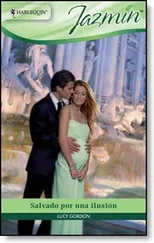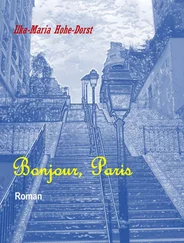But outbursts like this were relatively uncommon. I began to worry about something else. There was also a quiet, dejected, melancholic Don, and I began to see him more and more often. The expat friends we had in common noticed it, too. When we asked after the cause, he’d just say he was thinking. And if we carried on asking, he’d say even less. But we could guess what he was thinking about. A lack of money put a recurring damper on the party mood. His depressions almost always overcame him during the last week of the month. As soon as he’d been to the bank to collect his pension he’d drown himself in happiness again. But it went deeper than that. Sometimes he’d get a card or a letter from his sister in Birmingham. He would carry it with him in his inside pocket for days and tell us night after night that he’d gotten a card or a letter from his sister in Birmingham. He seemed just as surprised as we were that he had a sister and it made him melancholic, like someone taken unawares by a realization of lost time.
Don’s family was a concept no one could get their head round. He was one of those rare characters who, like Athena, must have sprouted fully armed out of someone’s head. Don was born with a gin and tonic in his hand; it was the only possibility, because without a gin and tonic in his hand, Don wouldn’t be Don. It was inconceivable that he’d ever been a normal toddler with anything as banal as a sister. Even more unimaginable, if that was possible, was the thought that he’d had ever had children himself. He was much too happy with his own cocky independence and his role as a maverick singleton at the heart of the crowd and much too faithful to his glass, his only mistress. And yet he had them. He had a daughter, who lived in Greece, and a son whose stage name was “Dicko” and had made a fortune in Australia playing a malevolent judge in TV talent contests. We found this out by chance. Don never talked about them. All contact had been cut off. And there must have been a wife involved, or in any case a mother to his children, but we never found anything out about her, not even by chance. He was in denial about his hidden past and trying to forget it, but its ghosts haunted his mind more and more often when he didn’t have enough money for the gin he needed to deny or forget.
He was getting old, that was it. He began to grow older than he’d ever imagined possible. He no longer had the strength for his forward flight every evening. He was being sucked back into his own past, which he wouldn’t share with anyone whatever bottle you plied him with. He resembled a wounded animal, hiding away under the roots of a tree to die out of sight of the cameras that continued to play for as long as he could see them.
11.
“I really can’t talk about it, but I know I can trust you. I’ll tell you on the condition that you don’t write it down. It was just before I graduated from Cambridge. My thesis on the metaphysical poets had been approved. Better still, I’d been given the highest possible grade. I’d been celebrating that in my own way for a few days. And one evening I came home and found an official letter from the dean on my desk. One of the bedders must have put it there. This was highly irregular. The college post was always delivered to the pigeon holes in the main hall, just next to the entrance. The next morning, when I’d sobered up, I opened the letter. The dean had invited me for tea at his home. This was highly, highly irregular.
“I was received in the drawing room. The dean’s wife served tea with a wide assortment of sandwiches, cakes, and petits fours. The dean joined us in the drawing room and began a very amicable conversation about a series of amusing trivialities. He told me stories about his time as a student and the short period during which he had been politically active. He seemed exaggeratedly interested in my thesis’s conclusions and my other views on English literature. He nodded and smiled friendlily at everything I said. His wife kept on topping up the teacups and proffering new delicacies. Meanwhile I felt more uncomfortable by the minute. Something was fishy about this. It was highly, highly, highly irregular. What was going on? What did he want from me?
“‘I know you have a great fondness for orchids,’ he said, ‘Come. I want to show you something.’ Where on earth had he gotten that from? I didn’t like orchids at all. But I went with him. We went outside through the back door, and right at the back of his large garden there was a greenhouse in which he cultivated orchids. He gave me a tour and at a certain point, while he was clipping away a couple of superfluous leaves with a small pair of shears, he casually asked, ‘By the way, have you ever considered joining the Service?’
“I didn’t have the foggiest what he meant. He carried on coolly trimming his orchids. It was a very finicky task. He leaned in close to scrutinize his work and said, ‘We have selected you as a potential candidate. You aspire to an academic career, don’t you?’ I nodded. ‘That can be arranged. It won’t get in the way of your work for the Service in any way. On the contrary, it would be an advantage because an academic career is a most suitable cover. You’d have to attend a lot of conferences abroad, but you wouldn’t have to worry yourself about that. We’d organize that for you.’ I still didn’t understand where this was heading. He said, ‘What I mean is this: if you cooperate, the Service would guarantee the preconditions, like a lectureship and, in time, a chair. That goes without saying.’
“I couldn’t believe my ears. ‘Why me?’ I asked. ‘Because you are one of the few here with a military background. Besides, there are certain facets of your personality that make you a very suitable candidate — you seem to value a varied social life and you are very credible in places where a lot of alcohol is drunk and people tend to be rather more loose-lipped than usual. That’s a characteristic that might come in useful. What’s more, you don’t clam up under pressure. I noticed that when I put you to the test with that condom that ostensibly had been found in your bed. And if you are still not convinced, I’ll give you one final argument.’
“He walked to the back wall of the greenhouse, where there was a tool cabinet. He took out a rolled-up piece of paper. ‘Do you recognize this document?’ It was my A-level certificate. ‘It’s a forgery,’ he said. ‘Not a bad forgery, I’ll admit, but we’re no fools. Listen, let me put it this way, as an employee of the Service such a demonstration of improvisational ability works in your favor, whereas under different circumstances it might be considered a punishable offence. Do you get my meaning?’ I nodded. ‘To prevent any misunderstanding, I’ll make myself more explicit. If you accept, we’ll put this document back in our archives and you’ll get your first class honors next week and we’ll underwrite your future academic career. If you refuse, I’ll unfortunately find myself compelled to take steps. To start with I’d have to cancel your graduation and following that, legal proceedings would be put into motion.’ I swallowed. ‘So I don’t have a choice?’ Smiling, he laid an arm around my shoulders. ‘No.’
“That’s how it happened. That’s how I got recruited into the Service. But once again: you have to swear that you won’t mention this to anyone else.” He took a generous sip of his gin and tonic.
“But what kind of service was it?”
“Ilja! Don’t you understand anything?” He looked around to make sure no one was listening. He leaned toward me and whispered in my ear, “MI6. Her Majesty’s Secret Service.”
12.
“In the early years, I was a kind of delivery boy. As a PhD student and later a professor, I was regularly invited to international conferences on the English metaphysical poets. It amazed me that there was so much interest in them worldwide. And the curious thing was that they were mainly held in places in countries which, to put it subtly, were ‘at odds’ with the United Kingdom. Peking. Bucharest. Havana. I gave lectures in all those places. And there was a lot of interest in metaphysical poets in Moscow. I went there at least ten times for conferences. And while my international colleagues debated my hasty conclusions, I was supposed to deliver a parcel. A parcel is a bit of an exaggeration. It was usually a newspaper. Or a magazine. It probably had a microfilm hidden in it. They never told me what I was carrying. It wasn’t my business. And I wasn’t supposed to ask questions, I was the delivery boy.
Читать дальше












